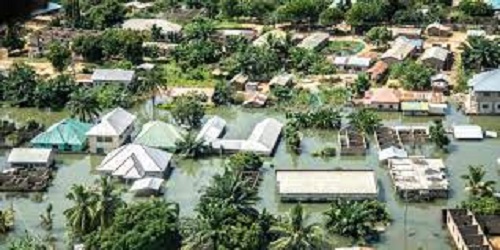
Water disaster, tourism
The spill over from the Akosombo Dam and its consequences in parts of the Volta, Greater Accra and Eastern Regions are now common knowledge.
Advertisement
What many Ghanaians did not know is that prior to the dam spillage, a large swathe of communities across the southern part of the Volta Region have been flooded for months.
From Aflao through Agbozume towards the coastal areas of Adina and Blekusu, folks have had to live with floods virtually in their bedrooms. Due to a combination of rain, sea and lagoon overflow. Now, for some of these people, the disaster is a double whammy.
And as the impact unfolds, we see that the effects of the disaster can be felt far up north. The question is: how should the tourism industry respond to such calamities? Of course, the interests of not only tourists but residents are equally important here.
Especially for tourism destinations, the dependence is mutual. If tourists stay away from such destinations the resident population will lose their livelihood.
The risks and threats posed by water disaster could be categorised into following four areas: reduced experiential value in outdoor recreation; reduced value in beach scenery and comfort; land degradation and reduced biodiversity; and reduced value in personal safety and comfort in tourism.
Call them “Acts of God” or “Natural Disasters”, but in reality, many of these disasters are as much a result of poor planning and poor risk management.
Natural disasters tend to lead to considerable infrastructural damage which in itself impedes the recovery of tourism, in particular if it damages tourist-related infrastructure. The concept of leisure tourism might be seen as frivolous when many people are suffering.
The implications of the Akosombo dam spillage will continue to ignite debates over compensation, land use and law enforcements. In tourism we are often more interested in the marketing aspect of the location than we are in understanding the location’s risks and what we need to do to mitigate those risks.
Too many tourism professionals do not know what questions to ask and whom to ask, what are both the human, legal, and economic consequences of a risk, and how to react in case a risk becomes a reality. Let’s see if the following tit bits help:
• Each location has its own set of risks; know yours! Although there is no location without some risk, risks are often dependent on a locale’s geography. That means that it is not enough to understand that a hotel is located near a big gutter or a beach resort is located next to a large water body.
Other factors must also be taken into account. Tourism officials need to understand drainage, rain storms, local topography, river locations, locations of power plants and in many locations and the number of potential roads that can be used for evacuation purposes.
• Know not only your own location’s risk but also your neighbours’ risks: An often overlooked risk is that your location may become an evacuation centre for a natural disaster in a neighbouring town or district. How will you cope with a large-scale evacuation? Do you have a plan to intermingle with visitors, with evacuee and what unforeseen problems might such an evacuation entail?
• Never overlook the potential for a health crisis: During a crisis we are often so concerned about basic needs that we overlook having proper (or at least minimal) health standards and medicines in place. Evacuation centres can contain hundreds of people, some of whom may carry simple colds or other illnesses. In such close quarters these illnesses can quickly turn into epidemics that cause additional pain and suffering.
• Be prepared before the crisis occurs: As soon as it is known that a potential natural disaster may occur, bring in as many supplies as possible. Make sure that you have places that are safe for storage and have thought through both a distribution system and some form of triage or rationing system.
• Get back to basics and develop delivery systems: This means that electricity may be lost and simple solutions are often preferable. Is there a way to communicate if cell towers go down or are destroyed?
• Get control of the narrative and smile: The last thing a tourism location wants to do is turn itself into being a victim. Be prepared to tell your story, and body language speaks as poignantly as do words. Encourage smiles, the more positive the body language the higher the levels of cooperation.
• Emphasise a sense of community: The more people have a sense of helping their neighbour along with a sense of self-reliance, the faster the healing. Natural disasters bring suffering. However, the suffering can be lowered if people have a sense of community combined with a can-do attitude.
• Meet with business leaders on a regular basis: Recovery from a natural disaster is dependent on not only government aid but also local businesses. Have a plan in place that will allow businesses, especially pharmacies and food outlets, to get back to business as soon as possible. Once the supply of basics is reestablished then other areas can be attended to.
• Tell the truth. Tell the truth. Tell the truth




